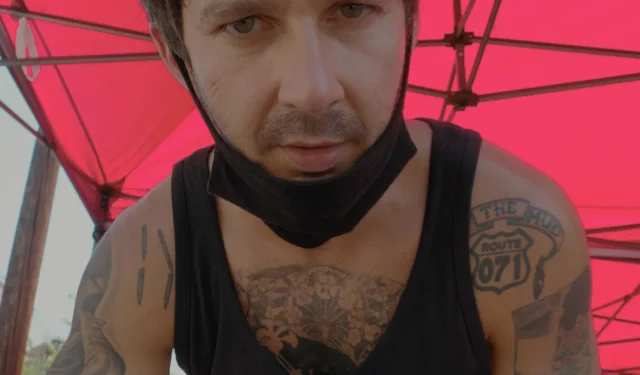Slauson Rec: A Journey into Collective Creativity
Documenting an innovative experimental theater initiative, Slauson Rec offers a heartfelt portrayal of collective creativity, while also revisiting the complex narrative surrounding Shia LaBeouf. Although not the filmmaker behind this documentary, LaBeouf serves as the project’s provocateur, making him an integral part of its story.
Behind the Camera: Leo Lewis O’Neil’s Directorial Debut
First-time director Leo Lewis O’Neil, responsible for both the direction and cinematography, initially joined LaBeouf’s endeavor after responding to his 2018 Twitter call for participants in a free theater workshop at the Slauson Recreation Center in South Los Angeles. Many respondents were young fans of LaBeouf, eager to participate in his artistic exploration. However, unlike most, O’Neil sought not to perform but to document the journey as an archivist, drawn by a desire to contribute to what LaBeouf later described as a “social science experiment.”
A Tapestry of Emotion and Creativity
The documentary features a rich tapestry of intimate footage captured over seven years, primarily during the workshop’s three-year lifespan. Slauson Rec immerses viewers in a whirlwind of creativity as bonds are forged, ideas flow, and individuals step outside their comfort zones. Throughout, O’Neil captures a range of emotions—from exhilaration during moments of success to the inevitable frustrations and breakdowns that punctuate the creative process.
The Complex Dynamics of Leadership
A significant portion of the documentary showcases LaBeouf’s unpredictability. Viewers witness his intense moments of frustration, anger, and emotional volatility, which are interspersed with a poignant narrative arc. O’Neil, who has his own connection to this narrative, delves into the group dynamics to understand what motivates LaBeouf and even appears eager to help him navigate through his internal struggles. The documentary frames LaBeouf’s journey as one of self-exploration, culminating in reflective interviews that reveal his newfound responsibilities as a family man.
Myth or Reality? The Festival of Emotion
Despite LaBeouf’s melodramatic confessions during interviews, labeling the fallout from his behavior as “fascistic” could be considered hyperbole. The documentary, while lengthy at two and a half hours, challenges viewers to reflect on the significance LaBeouf attributes to his artistic endeavor. Yet, rather than feeling like a chore, the film is vibrantly shot and well-edited, creating a fluid energy that captivates throughout its duration. LaBeouf’s dynamic expressiveness, whether he is delighting or infuriating, makes him a compelling figure on screen.
Potential for Expansion: A Recommendations
To enrich the viewing experience further, a potential recommendation for creators would be to expand Slauson Rec into a multi-part docuseries. While the candid behind-the-scenes conflicts are engaging, additional context surrounding the multimedia play 5711 Avalon would provide a more rounded understanding of its creative process and importance, especially amid the backdrop of the pandemic.
Collaborative Endeavors: LaBeouf’s Influences
Although LaBeouf’s fellow actors Bobby Soto and Donte “Bo” Johnson played crucial roles in co-founding the theater company, LaBeouf remains the central driving force behind it. His commitment parallels that of legendary filmmaker John Cassavetes, who also invested his finances into theatrical projects. However, unlike Cassavetes, LaBeouf’s initiative primarily featured an ensemble of emerging talent rather than established actors.
A Journey of Self-Discovery and Community Engagement
Initially, the workshops focused on movement-based devised theater emphasizing improvisation and collaboration. Participation dropped, indicating a shift in actors’ pursuit of more structured instruction. Yet, those committed reveled in the exhilarating experience of their first public performance, illustrating LaBeouf’s genuine passion for collaborative creation. His initial motivational speeches quickly transformed into bouts of frustration, highlighting an internal battle marked by hints of his personal struggles with addiction.
The Play’s Arrival Amidst a Pandemic
The pandemic’s arrival profoundly impacted their journey, exposing economic disparities while pushing the ensemble to adapt. They created 5711 Avalon, a production set against a COVID testing backdrop that spotlighted frontline workers. This production, rehearsed in an L.A. parking lot, drew attendance from notable figures when it premiered, showcasing the resilience of artists during challenging times.
Personal Stories Amidst Chaos
O’Neil also highlights the lives of cast members Sarah Kaplan, Sam Walker, and Ezekiel “Zeke” Pacheco, who remains loyal to both his role in the play and his contributions to LaBeouf’s vision, despite the pressures of the moment. The intensity of LaBeouf’s passionate moments adds layers to the documentary, showcasing a leader grappling with both his responsibilities and personal demons.
Reflections on Family and Growth
While O’Neil is not a performer, the film deftly portrays him as an integral and beloved member of the ensemble. His compassionate interactions with cast members emphasize the sense of community that emerged in the face of adversity. One poignant moment features a child witnessing LaBeouf’s erratic behavior, echoing the sentiments of bewilderment and confusion surrounding adult drama. Ultimately, Slauson Rec concludes on a note of gratitude, love, and the quest for grace, providing viewers with a multi-faceted look at creativity intertwined with personal struggle.


